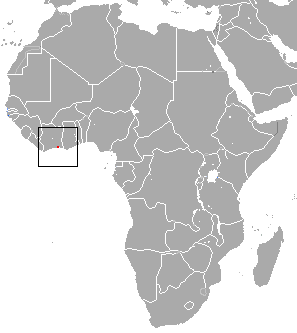Rare species
Rare species are organisms that are very uncommon, scarce, or infrequently encountered. These species are often at risk of becoming endangered or extinct if their already small populations continue to decline. Identifying and protecting rare species is crucial for maintaining biodiversity and the overall health of ecosystems. The rarity of a species can be due to a variety of factors, including habitat loss, pollution, climate change, overexploitation, and introduced species that compete for resources or bring diseases.
Causes of Rarity[edit | edit source]
Rare species often face a combination of threats that contribute to their low numbers. Key factors include:
- Habitat Destruction: The loss of habitat due to human activities such as agriculture, urban development, and logging is a major threat to many species.
- Climate Change: Changes in climate can alter the distribution of species and make their traditional habitats unsuitable.
- Overexploitation: The excessive hunting, fishing, or harvesting of certain species can lead to drastic declines in their populations.
- Pollution: Pollution can degrade habitats and poison species, leading to decreased numbers.
- Invasive Species: Non-native species can outcompete, prey upon, or bring diseases to native species, leading to declines in their populations.
Conservation Efforts[edit | edit source]
Conservation of rare species involves a variety of strategies aimed at protecting and increasing their populations. These include:
- Protected Areas: Establishing national parks, nature reserves, and other protected areas to conserve the natural habitats of rare species.
- Legal Protection: Implementing laws and regulations to protect rare species from overexploitation and trade.
- Habitat Restoration: Restoring degraded habitats to provide suitable living conditions for rare species.
- Captive Breeding: Breeding species in captivity and reintroducing them into the wild to boost their populations.
- Research and Monitoring: Conducting research to understand the needs of rare species and monitoring their populations to track their recovery efforts.
Challenges in Conservation[edit | edit source]
Conserving rare species presents several challenges, including:
- Limited Knowledge: In many cases, there is insufficient information about the biology and ecology of rare species, making it difficult to implement effective conservation strategies.
- Funding: Conservation efforts often require significant financial resources, which may not be readily available.
- Human Conflicts: Conservation measures can sometimes conflict with local human activities and interests, such as agriculture and development.
- Climate Change: The ongoing impacts of climate change can undermine conservation efforts by altering ecosystems at a pace that species cannot adapt to.
Conclusion[edit | edit source]
The conservation of rare species is a critical component of preserving biodiversity and the health of ecosystems. Despite the challenges, efforts to protect these species through legal protection, habitat conservation, and research are vital for their survival and the well-being of our planet.
Search WikiMD
Ad.Tired of being Overweight? Try W8MD's physician weight loss program.
Semaglutide (Ozempic / Wegovy and Tirzepatide (Mounjaro / Zepbound) available.
Advertise on WikiMD
|
WikiMD's Wellness Encyclopedia |
| Let Food Be Thy Medicine Medicine Thy Food - Hippocrates |
Translate this page: - East Asian
中文,
日本,
한국어,
South Asian
हिन्दी,
தமிழ்,
తెలుగు,
Urdu,
ಕನ್ನಡ,
Southeast Asian
Indonesian,
Vietnamese,
Thai,
မြန်မာဘာသာ,
বাংলা
European
español,
Deutsch,
français,
Greek,
português do Brasil,
polski,
română,
русский,
Nederlands,
norsk,
svenska,
suomi,
Italian
Middle Eastern & African
عربى,
Turkish,
Persian,
Hebrew,
Afrikaans,
isiZulu,
Kiswahili,
Other
Bulgarian,
Hungarian,
Czech,
Swedish,
മലയാളം,
मराठी,
ਪੰਜਾਬੀ,
ગુજરાતી,
Portuguese,
Ukrainian
Medical Disclaimer: WikiMD is not a substitute for professional medical advice. The information on WikiMD is provided as an information resource only, may be incorrect, outdated or misleading, and is not to be used or relied on for any diagnostic or treatment purposes. Please consult your health care provider before making any healthcare decisions or for guidance about a specific medical condition. WikiMD expressly disclaims responsibility, and shall have no liability, for any damages, loss, injury, or liability whatsoever suffered as a result of your reliance on the information contained in this site. By visiting this site you agree to the foregoing terms and conditions, which may from time to time be changed or supplemented by WikiMD. If you do not agree to the foregoing terms and conditions, you should not enter or use this site. See full disclaimer.
Credits:Most images are courtesy of Wikimedia commons, and templates, categories Wikipedia, licensed under CC BY SA or similar.
Contributors: Prab R. Tumpati, MD






